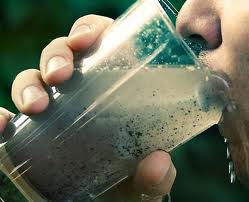On Canada’s east coast, American oil and gas companies are doubling down and betting that the small maritime province of New Brunswick is the next shale gas hot spot.
How has New Brunswick become a primary destination for oil and gas companies? Two reasons in particular stand out: 1) The government does not know how it will manage shale gas exploration (having only just released its “framework for a long-term action plan to manage the exploration, development and utilization of domestic natural gas” last Thursday evening) – which means companies that invest early will have a say in developing gas exploitation policies; 2) In terms of gas concentrations per square kilometer, New Brunswick may hold North America’s largest shale bed [PDF].
New Brunswick was not on the gas industry’s radar a couple of years ago but things are changing rapidly as American gas developers are rushing across the border to snap up exploration rights in order to win big in the destructive shale boom.
A year ago this past March, the provincial government granted rights to companies to explore for gas on one million hectares in New Brunswick, on top of another half-million hectares previously provided. Now close to 100 communities fall in the combined 1.5-million hectare territory, located mainly in the southeast.
One key U.S. player diving into the emerging shale market in New Brunswick is Houston-based Southwestern Energy Co. (a.k.a. SWN Resources in Canada), which found the Fayetteville play in Arkansas. Southwestern Energy will spend nearly $47 million over the next three years looking for shale gas in NB. This is SWN’s first project outside the U.S. and the company is lobbying the NB government hard with Tom Alexander, their regional manager, serving as the spokesperson for the whole industry in the province.
Apache Canada Ltd., a subsidiary of Houston-based Apache Corporation, which is already involved in shale plays in the Horn River Basin in Northern Alberta, plans to spend $25 million on exploration activities over the next 18 months in New Brunswick.
Exploiting shale gas in the province will require the use of the highly controversial hydraulic fracturing technique (a.k.a. fracking). “Fracking fluids” (water, sand and chemicals) are injected as a dirty cocktail into shale formations cracking the rock under extreme pressure and releasing gas.
If the experiences of their U.S. neighbors are any indication, New Brunswick citizens should worry that in September 2010, 13 families in Pennsylvania’s Susquehanna County filed a lawsuit accusing SWN of contaminating their drinking water with fracking chemicals and waste dating back to 2008. Locals are worried this could happen in New Brunswick given the current lack of government oversight of the industry, and the slow pace of government efforts to enact regulations to hold the industry accountable for any damage it causes.
Between the Sussex and Elgin regions there is an estimated 67 trillion cubic feet of gas. Citizens in the communities of Penobsquis and Elgin, where drilling is already taking place, are concerned about the impacts of gas development on their groundwater, aquatic ecosystems and their own health.
While gas companies are enjoying an early head start on gas exploration and permitting, the provincial Natural Gas Steering Committee is still figuring out how to manage the industry. On Thursday, Natural Resources Minister Bruce Northrup finally announced a short-term action plan, indicating how far behind the province is in setting critical rules for development:
“Today, we are in the early stages of what could be the development of a significant natural gas industry in our province…”
“If this occurs, our government will make sure it is done in an environmentally responsible manner with maximum economic and social benefits for New Brunswickers. That is why we are developing this made-in-New-Brunswick plan.”
The government has conducted fact-finding missions outside the province, but to date its phased-in environmental impact assessment fails to account for cumulative impacts, and thus far it has largely failed to seek input from the residential community.
Unconvinced by government efforts, the Conservation Council of New Brunswick Action (CCNB Action) is calling for an outright ban. Stephanie Merrill, CCNB Action Freshwater Protection Coordinator and primary contact on the shale gas file, discussed the many dangers from continuing to expedite shale gas development:
“Given the mounting evidence, throughout North America, against the safety of well drilling and hydraulic fracturing, and the inherent risks associated with the entire process of shale gas development, we feel that no regulations can ever control this industry and the risks to our water, air, landscape and human health are too high. CCNB is calling for a ban on shale gas exploration and production in New Brunswick…”
Accordingly, the CCNB has launched its “No Means NO”! campaign with a petition [PDF] to ban shale gas.
Access the CCNB primer on shale gas: “Fracking for Shale Gas in New Brunswick: What you need to know” [PDF]
Subscribe to our newsletter
Stay up to date with DeSmog news and alerts







